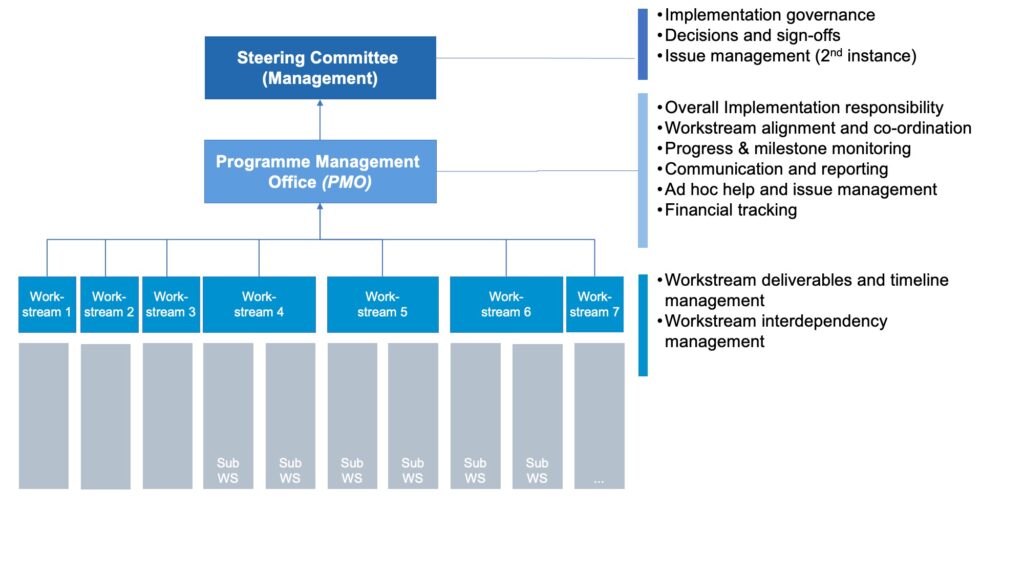A transformation manager needs to first and foremost be an excellent leader
Implementations are typically characterised by “doing things the first time”. It is important to have a Change Lead or Transformation Manager, who is an experience leader and problem solver. In my experience, complex organisational change is not something you can manage with minuscule project plans, detailed key performance indicators and service level agreements. These instruments have their place again, when the organisation is in a “steady state”.
It is key however, to embed a commonly understood and agreed upon implementation roadmap, defined roles&responsibilities, and strong change management and problem solving processes.
Every transformation manager needs following instruments:
- Project organisation with defined roles&responsibilities
- Project plan, including timelines and milestones/deliverables and budgets
- Meeting structure and cadence
- Risk and Issue management process
Agile programme management methodologies have taken over in software development (vs traditional waterfall methodologies). This is an acknowledgement that flexibility and agility are key when delivering in a highly complex and shifting environment.
As to the transformation team:
- Large transformations need to break down complexity via different Workstreams and are managed by a Programme Management Office (PMO) and full-time assigned Workstream Leads. They lead teams with subject matter experts, who typically have another day job and are assigned part-time only
- Smaller organisational change may be managed by a change manager and several subject matter experts only
Illustrative: Sample Programme Management Organisation
